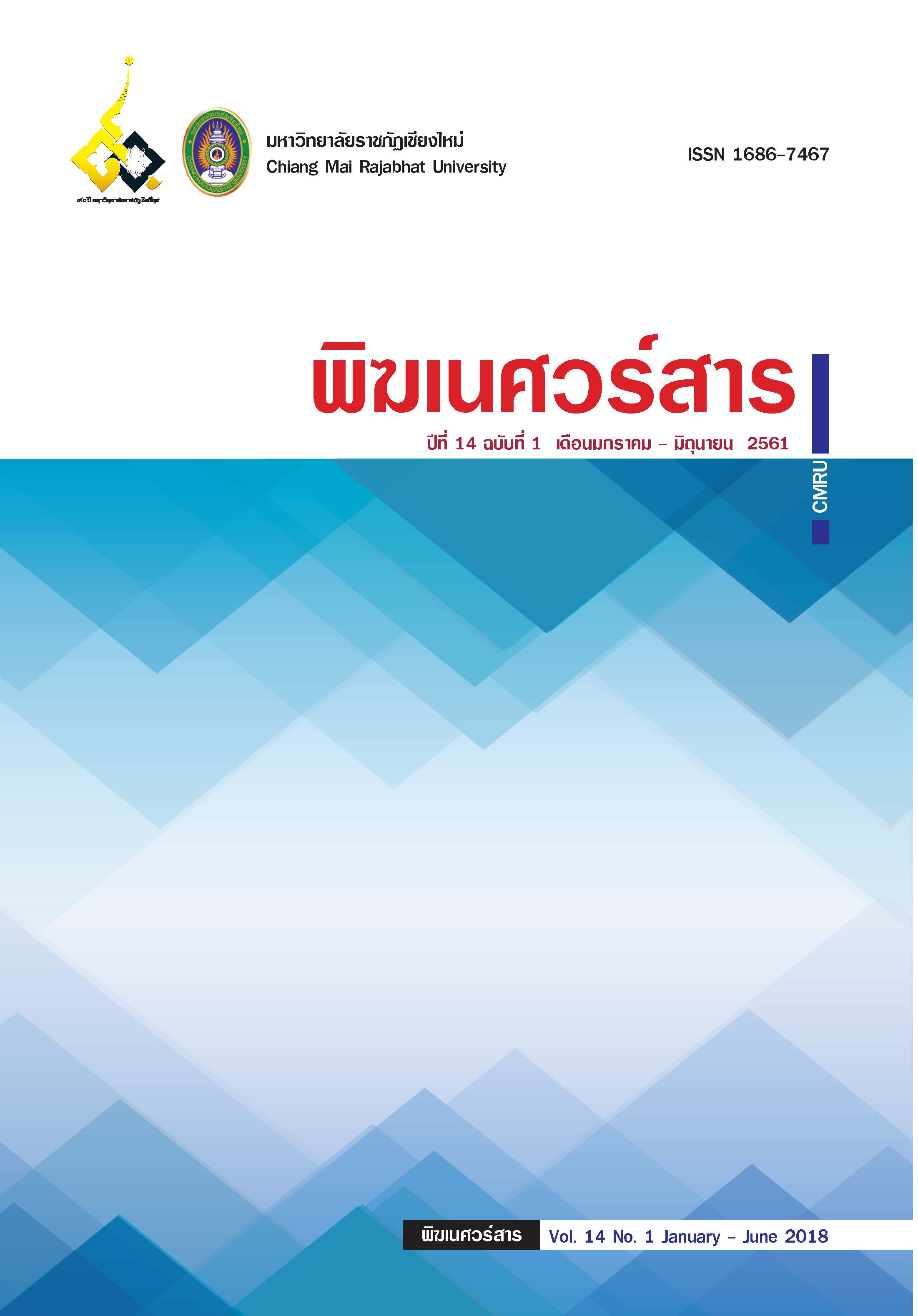สถานะทางกฎหมายของกฎหมู่บ้าน ตามพระราชบัญญัติลักษณะปกครองท้องที่ พ.ศ. 2457
Main Article Content
บทคัดย่อ
หมู่บ้านเป็นหน่วยการปกครองที่มีขนาดเล็กที่สุดตามพระราชบัญญัติลักษณะปกครองท้องที่ พ.ศ. 2457 แม้จะเป็นส่วนหนึ่งของการปกครองแต่กลับไม่มีกฎหมายบัญญัติให้อำนาจในการกำหนดระเบียบหรือกฎหมู่บ้านได้ ส่งผลให้ระเบียบหรือกฎหมู่บ้านที่กำหนดขึ้นไม่มีสถานะตามกฎหมายเป็นแต่เพียงการยอมรับของประชาชนในหมู่บ้านเท่านั้น เมื่อมีผู้ไม่ปฏิบัติตามหรือละเมิดระเบียบหรือกฎหมู่บ้านผู้นั้นก็ไม่ได้มีความรับผิดตามกฎหมายแต่อย่างใด ทั้งที่หมู่บ้านเหล่านี้ส่วนใหญ่จะมีแนวทางปฏิบัติ วัฒนธรรม จารีตประเพณีสืบทอดต่อกันมา แต่เมื่อสังคมมีการเปลี่ยนแปลงไปส่งผลให้แนวปฏิบัติ วัฒนธรรม จารีตประเพณีเหล่านั้นต้องมีอันเลือนหายไป ในขณะเดียวกันเมื่อมีการประกาศใช้พระราชบัญญัติการจัดสรรที่ดิน พ.ศ. 2543 ทำให้เกิดนิติบุคคลหมู่บ้านจัดสรรขึ้น และยังบัญญัติให้นิติบุคคลหมู่บ้านจัดสรรสามารถกำหนดระเบียบหมู่บ้านจัดสรรเกี่ยวกับการใช้ประโยชน์สาธารณูปโภค การอยู่อาศัยและการจราจรภายในที่ดินจัดสรรได้ ทำให้กฎกติกาการอยู่ร่วมกันในหมู่บ้านจัดสรรถูกรับรองให้มีผลตามกฎหมาย หากมีการฝ่าฝืนระเบียบดังกล่าวย่อมส่งผลให้เกิดความรับผิดตามกฎหมายขึ้น จะเป็นการดีกว่าหรือไม่หากหมู่บ้านสามารถนำแนวปฏิบัติ วัฒนธรรม จารีตประเพณีที่สืบทอดต่อกันมานี้ มากำหนดเป็นระเบียบหรือกฎหมู่บ้านที่มีผลใช้บังคับได้ตามกฎหมาย เพื่อเพิ่มศักยภาพในการพัฒนาคุณภาพชีวิตของประชาชนในหมู่บ้านลดความเหลื่อมล้ำทางสังคม และสร้างสำนึกความรับผิดชอบต่อชุมชนร่วมกัน ทำให้การบริหารจัดการหมู่บ้านมีประสิทธิภาพมากขึ้น
Article Details
บทความที่ได้รับการตีพิมพ์เป็นลิขสิทธิ์ของบัณฑิตวิทยาลัย มหาวิทยาลัยราชภัฎเชียงใหม่
ข้อความที่ปรากฏในบทความแต่ละเรื่องในวารสารวิชาการเล่มนี้เป็นความคิดเห็นส่วนตัวของผู้เขียนแต่ละท่านไม่เกี่ยวข้องกับมหาวิทยาลัยราชภัฎเชียงใหม่ และคณาจารย์ท่านอื่นๆ ในมหาวิทยาลัยฯ แต่อย่างใด ความรับผิดชอบองค์ประกอบทั้งหมดของบทความแต่ละเรื่องเป็นของผู้เขียนแต่ละท่าน หากมีความผิดพลาดใด ๆ ผู้เขียนแต่ละท่านจะรับผิดชอบบทความของตนเองแต่ผู้เดียว
References
กิตติยา ศักดิ์ศรีมณีกูล. (2550). นิติบุคคลหมู่บ้านจัดสรรกับผลในทางกฎหมายภายหลังการจดทะเบียนจัดตั้ง. (วิทยานิพนธ์นิติศาสตรมหาบัณฑิต, สาขาวิชานิติศาสตร์ มหาวิทยาลัยธุรกิจบัณฑิต).
นรเสฏฐ์ นาคภัทระพงศ์,สัญญา สัญญาวิวัฒน์,ปิยนาถ บุนนาค. (2555). การบริหารจัดการมณฑลเทศาภิบาลในรัชสมัยพระบาทสมเด็จพระจุลจอมเกล้าเจ้าอยู่หัว. วารสารพฤติกรรมศาสตร์, 18(2), 143.
นิล พันธุ์คงชื่น. (2561). วัฒนธรรมกฎหมายของกลุ่มชาติพันธุ์กับการเปลี่ยนแปลงของสังคม : กรณีศึกษากลุ่มลีซอ ตำบลเวียงใต้ และกลุ่มมูเซอ ตำบลแม่นาเติง อำเภอปาย จังหวัดแม่ฮ่องสอน. เชียงใหม่: มหาวิทยาลัยราชภัฏเชียงใหม่.
ภชฤทธิ์ นิลสนิท. (2552). สิทธิในการไม่สมาคม: ศึกษากรณีการลาออกจากสมาชิกนิติบุคคลหมู่บ้านจัดสรร. ดุลพาห, 56(2), 137.
สมชาติ เอี่ยมอนุพงษ์ (2556). ยุติธรรมชุมชนคืออะไร. สืบค้นจาก https://khonkaen.moj.go.th/index.php?option=com_content&view=article&id=18:com&catid=12:knowledge&Itemid=136
สมยศ เชื้อไทย. (2550). นิติปรัชญา. (พิมพ์ครั้งที่ 11). กรุงเทพฯ: วิญญูชน.
สำนักบริหารการปกครองท้องที่ กรมการปกครอง กระทรวงมหาดไทย. (2561). การปกครองท้องที่. สืบค้นจาก https://pab.dopa.go.th/mmenu1.html#village
สำนักส่งเสริมธุรกิจอสังหาริมทรัพย์ กระทรวงการพัฒนาสังคมและความมั่นคงของมนุษย์. (2561). สถิติปริมาณการออกใบอนุญาตให้ทำการจัดสรรที่ดิน ตั้งแต่ พ.ศ. 2546-พ.ศ. 2560. สืบค้นจาก https://www.m-society.go.th/ewt_news.php?nid=22335
สำนักส่งเสริมธุรกิจอสังหาริมทรัพย์ กรมที่ดิน กระทรวงมหาดไทย. (2561). ข้อมูลการจดทะเบียนจัดตั้งนิติบุคคลหมู่บ้านจัดสรร. สืบค้นจาก https://www.dol.go.th/estate/Pages/default.aspx#

